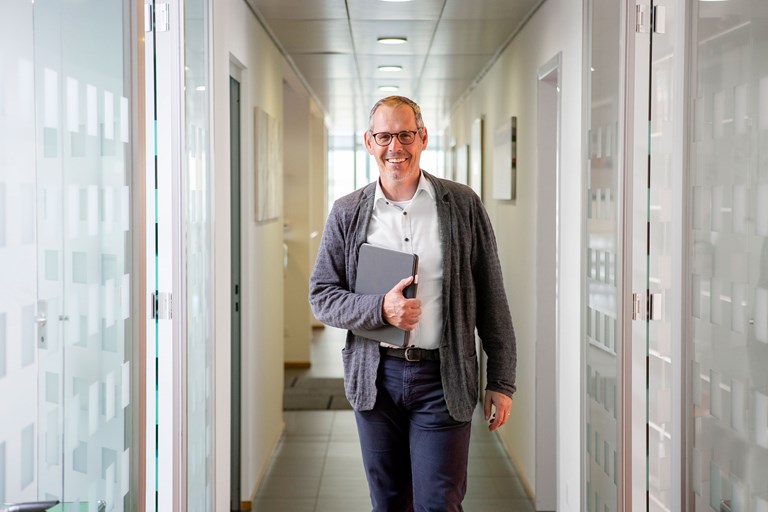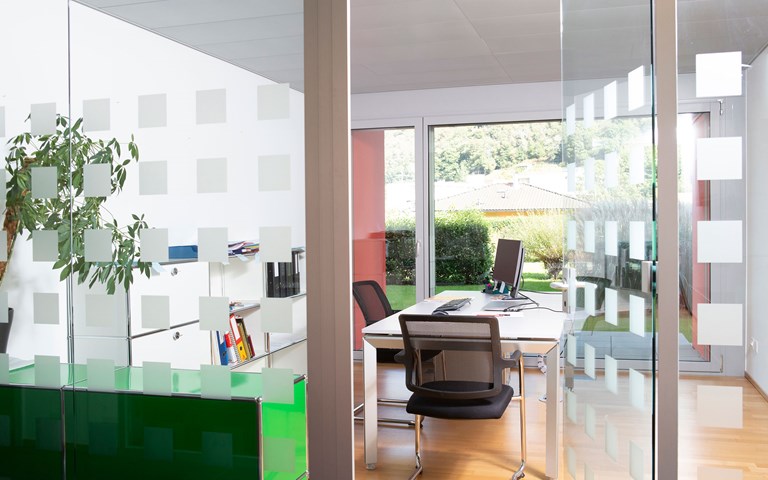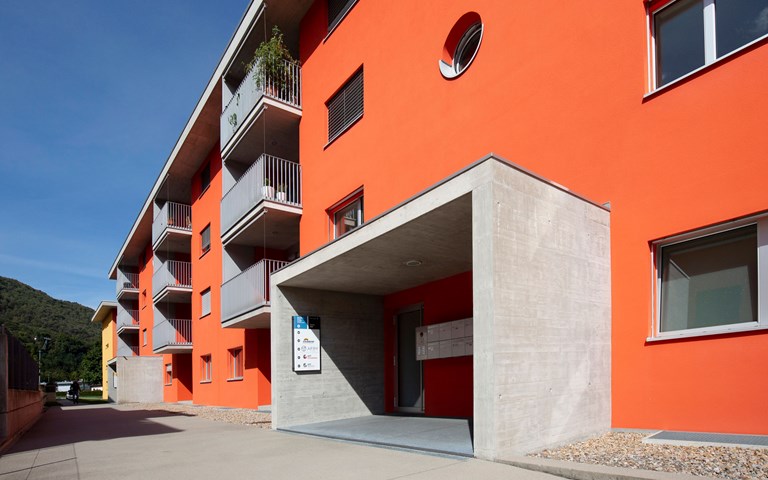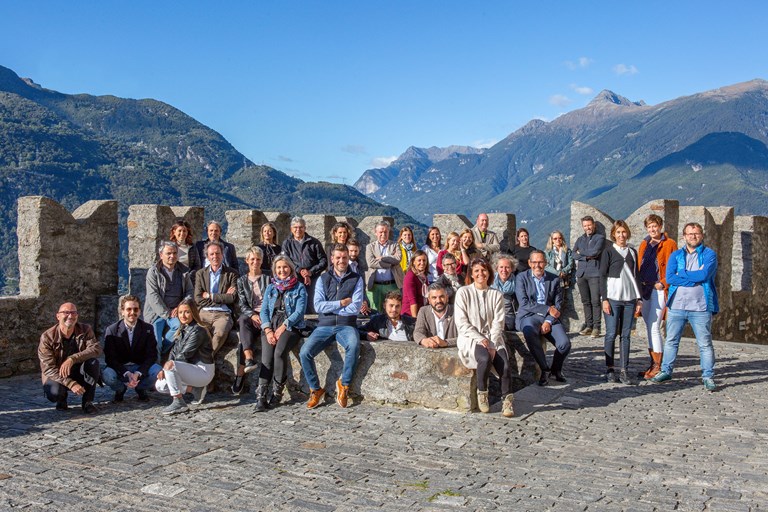
The buildings doctor
It happens in many professions. For example, if you want to take care of people, you become a doctor and then you end up behind a desk as a health manager signing authorisations.
Sergio Tami was born with a passion for taking care of buildings. A civil engineer, he specialised in building physics, which also includes carrying out expert reports, thinking about the ever-increasing needs and expectations that people have of a simple building.
His response is crucial. On his ‘diagnosis’ and ‘prognosis’ are the basis for insurance and insurance companies to start treatment. But when you like to do your job well, you try to choose good helpers, to offer a better service to the client. So, it can happen that you find yourself at the head of a company with 80 employees and you have to think more about running the company than going into the field. That’s what happened to Tami. However, as the engineer over the age of 50, he realised that the desire to take care of buildings had not gone away. Not least because today there are new conditions that can facilitate the “ailments” of houses: from climate change to technological complexity. When his 21-year-old creature (IFEC engineering) came of age and got married, Tami preferred to continue working with Galli Partners Consulting SA rather than a future behind the desk as a multinational executive. He tells us about it in this interview, along with his passion for teaching the “profession” to the younger generation.

Tami, you founded and developed IFEC, which has become one of Ticino’s largest engineering firms. Three years ago IFEC joined a multinational group like AFRY, now you are involved in Galli Partners Consulting. What were the reasons that pushed you in this direction?
“To tell you the truth, I simply wanted to continue doing my job, the thing I like most: building damage appraisals, mediations to help people argue less. At the time of the integration with AFRY I would have had the opportunity to have a management position in Zurich, but I preferred to remain active in my profession. I was aware that IFEC had reached such a level of solidity that my departure was in fact painless.”
So let’s take a step back to 1994.
“It was my wife Sara, whom I will never cease to thank, who convinced me to open my own business. Then, until 2000, I was on my own. In that year, with my partner Dario Bozzolo, we founded IFEC consultancy. At the time, there was only the architect Giovanni Laube. Since we wanted to follow our customers well, we started to hire collaborators. Eighteen years later, when we joined AFRY, there were eighty of us.”
Important numbers for Ticino.
“Without a doubt, these are important numbers for the Ticino sector. Ticino has given us a lot, and I’m convinced that it will continue to do so, but if we wanted to take on mandates beyond Gotthard or at an international level, we inevitably had to grow and enter larger companies.”
It was a choice to give continuity to IFEC, which could have led you to be a manager in a larger company. And instead?
“Instead, I love my job as an appraiser and the conditions have been created for me to be able to do it in Galli Partners Consulting, so as to avoid any potential conflicts of interest. Even if my collaboration with IFEC, on some mandates, remains, exploiting all those synergies that ultimately benefit the client.”
So let’s talk about your activity. What are the major emergencies today with regard to damage to buildings?
“One of the key issues is climate change. Last summer was exemplary in Ticino. Weather phenomena that were once thought of as extraordinary events in our area are becoming more frequent. Just to give you a couple of examples, we were involved in expert reports at Locarno civil airport, where the hangar1 was blown off its hinges by strong gusts of wind. In another case, damage was caused to a house by flooding due to an overflowing brook.”

What do you do in such cases?
“First and foremost, it’s about offering people help, to enable them to reuse their damaged property as quickly as possible. In this case, for example, by establishing the compensation due from an insurance point of view.”
Are renovations then only conservative?
“It depends. Certainly that is the priority, but you can take advantage of the need for an intervention to try to increase the performance of the building. In the face of climate change, regulations are also adapting.”
What are the other causes of damage to buildings?
“The other big issue is the complexity of buildings. In the last twenty years there are more and more materials being used and more and more professionals involved. Usually the problems arise in the connections, in the interfaces. For example, most damage is caused by water infiltration. It is not enough to have a perfect window or wall, because it is often at the junction that problems arise. In these cases, it is essential to understand the causes of the damage before looking into renovation.”
The engineer, therefore, should not just make calculations.
“This is the point. Not only in my sector, but starting with the design team, the engineer’s role must be interpreted as that of a consultant who has a global vision of the work. And, of course, you have to consider the other two elements that play a role in the construction of a building: the contractors and the client.”
Meaning?
“Not always do contractors have all the necessary know-how and not always is the client clear about what he wants. In any case, there are tendencies to want more and more but not necessarily to invest more. One example: instead of adapting our bodies, we find technological inventions to do so. Who today would make a 300 km journey in a car without air conditioning? This generates a cycle that is not very virtuous.”
In what way?
“As I explain to my students, we produce more energy-efficient light bulbs, but we use ten in a room, whereas before there was only one (and people only turned it on when necessary). We should always approach issues with a global vision. There is no point in spending money on photovoltaic panels if the house is very bad in terms of energy loss. The same applies to land management. In Switzerland, in recent years, we have invested in structures, even at high altitudes, in unpopulated areas, in order to prevent hydrogeological instability and we have been far-sighted with regard to climate change. We must continue to do so.”
You mentioned the students. You are also a lecturer at SUPSI, do you recommend becoming an engineer?
“At the base of everything is passion, as in any trade or profession. After that, I recommend learning languages well: English and German, above all. To travel around and gain experience in Switzerland, Germany or outside Europe. There is always time to go back to your roots.”
Does the figure of the engineer appeal to the younger generation?
“In Ticino we have a shortage of engineers. Partly because many prefer to go beyond Gotthard to work, partly because it is seen as less rewarding than other professions. But good engineers earn good money and if you have a global vision, you can make an important contribution in design teams, seeing your role recognised.”
Playlist


